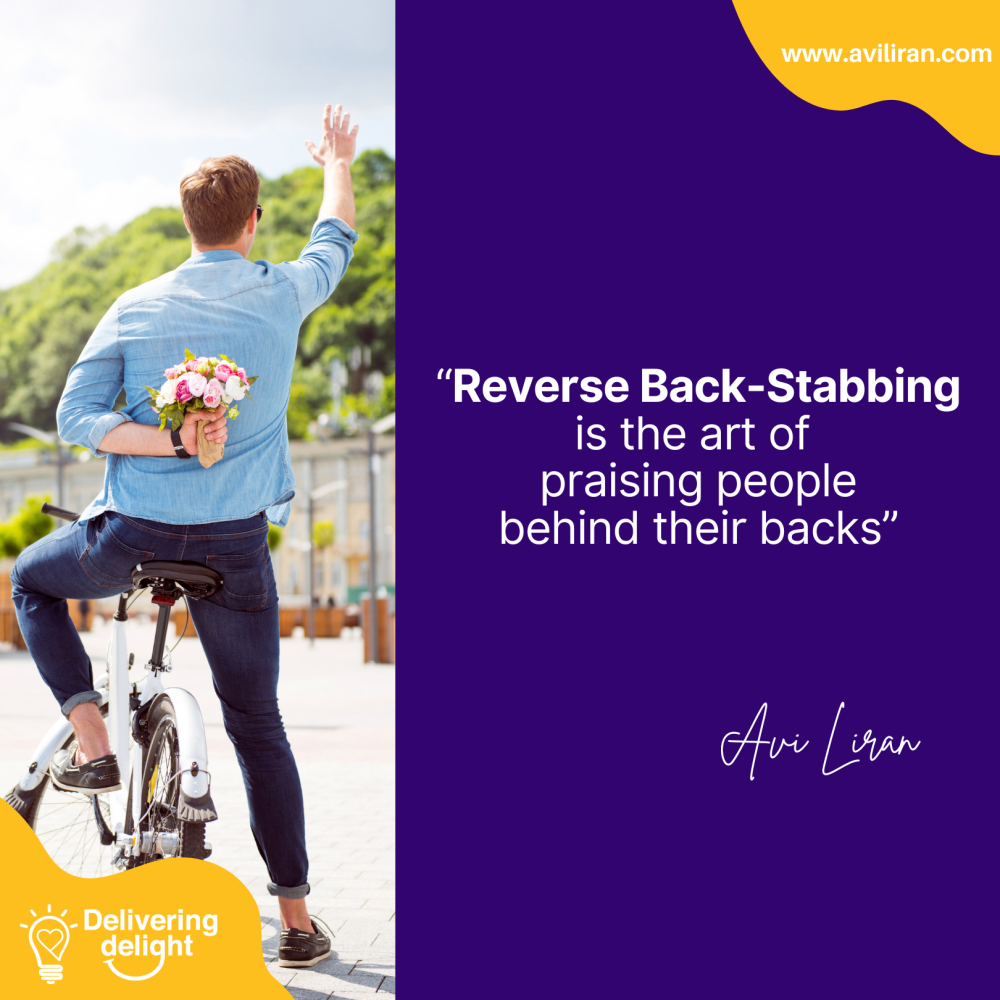It was a cold bright winter day in Cleveland Ohio but inside the Weatherhead School of Management campus at Case Western University it was warm and fuzzy. In the first lesson on Appreciative Inquiry (AI), Dr. David Cooperridertaught us the principles of the Appreciative Interview which is a key activity of the Discovery stage at ‘the heart of AI’.
I partnered with Jeff. Our task was to elicit positive and appreciative personal stories from each other. It was easy for Jeff because he is a humble and kind person and a great listener. However, contrary to the spirit of our assignment, I was not an appreciative listener. Instead of being present and celebrating what Jeff said, I was in my head asking myself judgmental questions like, “Isn’t the story a little boring? I think that my story is better.”
During the break, people shared with each other how they felt about the ‘appreciative interview’. I did not have nice things to say about Jeff’s stories.
During the recess, people were sharing with each other how they felt about the ‘appreciative interview’. I did not have nice things to say about Jeff’s stories. In retrospect, I was a rotten “Rotten Tomatoes” critic of Jeff’s honest storytelling cinema.
Jeff, on the other hand, not only listened well to my story and my desire to meet C-level people who could be my clients, but he also took positive action to help me. The following day, he invited me to a networking dinner. “You will love this event, Avi. This is a monthly gathering of the CEOs of startup companies in Cleveland.” Jeff is a “Mentch”. He wasn’t just a host; he was the entire concierge desk. He drove through the heavy rain and made an effort to introduce me to people.
During the course, I learned that Jeff is a smart, wise, and kind giver. But In retrospect, I was a rotten “Rotten Tomatoes” critic of Jeff’s honest storytelling cinema.
I was full of shame and guilt for my untruthful badmouthing. When we met again 6 months later to complete our AI certification, Jeff gave me a gift: a religious Christian book to read.
Going back to the biblical morals reminded me of the following verse:
"All that is flawed in its form is flawed." "כָּל הַפּוֹסֵל בְּמוּמו פּוֹסֵל"
In literal translation from Hebrew means “Everyone who disqualifies others does it from his own defects”. The origin of this phrase is from the Jewish Talmud. The phrase is used metaphorically to caution against the human tendency to project our own defects onto others and find faults in them.
I had projected my “shadow” onto Jeff.
Psychologist, Carl Jung, described ‘the shadow’ as the dark, unconscious aspects of ourselves that we don’t acknowledge and often project onto others.

Gossip Hurts Everyone
Imagine finding out that a co-worker has been negatively speaking about you behind your back. Understandably, your trust in them dissipates. For many of us, this affects our ability to perform in the same capacity.
Unless sharing negative gossip helps people evade potentially harmful situations like physical or emotional abuse, toxic behavior, or breaches of integrity, it’s generally best to steer clear of such unconstructive chatter. According to Matthew Feinberg from the University of Toronto and his research team, prosocial gossip that helps to protect others, can effectively deter selfishness and promote cooperation. (1)
Studies have shown that malicious gossip is a lose-lose-lose game for everyone. It harms the unwitting subject, the organization, and often hits the gossiper like a boomerang.
❌ Kills trust resulting in information hoarding and less collaboration Spreading negativity about others is like being the “workplace skunk”. No one wants to be near you, and the stench lingers on your personal brand.
❌ Destroys harmony creating unhealthy, time-wasting drama that hurts productivity.
❌ Hurts flings and reputations thus destroying relationships, and disrupting DE&I. When people feel disrespected or unfairly spoken about, they rarely forgive.
❌ Increases anxiety, stress, and emotional exhaustion, which dampens creativity and fuels attrition.
❌ Hurts team cohesion by creating cliques and divisiveness, making it harder to work together towards a common goal.
❌ Produces enemies. Credibility and influence are lost once one is labeled as a gossiper. In life, we need allies. In life, we never know when we will meet again and who will need whom.

“Positive Gossip” Ignites a Virtuous Circle
⬆ Positive Gossip breeds trust: A recent study has shed light on how Positive Gossip promotes better interpersonal relationships, and greater influence and encourages more information exchange.
⬆ Seeds promotion campaign: As a leader, it’s a part of your job to ensure others, especially decision-makers, see members of your team shine. You are investing in planting positive impressions on them because you will need their support when seeking endorsement for their promotion.
⬆ “Positive Gossipers” are more creative: The study highlights that employees who circulate positive gossip tend to exhibit more innovative behaviors in their work.
⬆ The Boomerang Effect: Spreading “Positive Gossip” such as defending others and praising others, often generates similar support in return.If you believe in spirituality, speaking well of others behind their backs is a karma booster.
⬆ Boosts morale: Hearing good things about oneself or others uplifts spirits, making for a happier workplace. “Positive gossip” is the workplace’s ‘Easter egg’. It is hidden but delightful when they hear about it.
⬆ Strengthens social bonds: Positive gossip can strengthen social ties by creating a sense of shared goodwill and community.
⬆ The Halo Effect: When you’re spreading good vibes about others, people are more likely to associate you with positivity too.
⬆ The scent of positivity: In contrast to the repellant aroma of a gossip-monger, singing others’ praises turns you into a social potpourri. People will catch wind of your positive vibes and flock to you like bees to nectar.
"Who is the man who is eager for life, who desires years of good fortune? Guard your tongue from evil, your lips from deceitful speech. Shun evil and do good, seek amity and pursue it." ~ Psalms 34:13-15
How to Avoid “Negative Gossip”?
🔽 Don’t spread “Negative Gossip”. If you make a hasty judgment as I did, you might feel shame and regret sharing your “opinion”. Remember in American movies, when police arrest a suspect, they are required to read the “Miranda warnings” to inform the suspect of their constitutional rights. “You have the right to remain silent. Anything you say can and will be used against you in a court of law”. The power of remaining silent can be a shield against impulsive negativity and incriminating negative gossip. In the poker game of life, your best hand may just be keeping your lips zipped.
"If you can't say something nice, don't say nothing at all" ~ Thumper
🔽 Don’t take part in “Negative Gossip”. Let the toxic chatter train pass you by. There is no need to hop on. If cornered for your two cents, pivot to Sherlock mode, demand proof, and champion for the accused to have a seat at the table for their own defense.
🔽 Use Socrates’ three Sieves. If you can’t control the urge to take part in negative gossiping, at least filter the information and decide whether it’s worth sharing or hearing. The three sieves are Truth, Goodness, and Usefulness.
Before you spill the tea (what you intend to say), let it steep through Socrates’ three sieves: Is it true? Is it kind? Is it necessary? If it doesn’t pass all three sieves, it’s best to keep the kettle quiet!
🔽 Face the music test. This is your character’s litmus test. Are you a behind-the-scenes whisperer or a stand-up individual? Do you have the guts to say to someone’s face what you’d murmur behind their back?
🔽 Beware of favoritism. Selective Positive Gossip” is counterproductive. When it is not inclusive it backfires and deems discriminatory. Favoritism Positive Gossip is like a one-sided seesaw: It may lift one person up, but it leaves everyone else down, hurts morale, and ignites a wave of negative gossip.
🔽 Stand up against vicious gossip. Have other people’s back. Reveal your integrity by being the voice for those not present, especially when they’re on the topic of unjust chatter.
When we encounter gossip that holds some truth and we’re unable to defend the absent individual, the least we can do is responsibly relay the constructive aspects of the chatter to the person being discussed.
How to Cultivate “Positive Gossip”?
✔ Spot the good. Switch and fine-tune your ‘success radar’ so you’ll be picking up on people’s efforts and small wins like a metal detector on a gold rush.”
✔ Uncover the hidden. Cultivate X-ray vision for talent. Hone your skill in unearthing hidden gems of talent. Experience sharpens your ability to recognize others’ untapped potential, especially when they’re oblivious to their own gifts.
✔ Be Timely: Don’t be a praise procrastinator; timely sharing of good news hits harder than a “better late than never” cheer.
✔ Be consistent and authentic.Make sure you actually believe what you’re saying to avoid coming across as disingenuous. Inconsistent or fake flattery is the kryptonite to your credibility.
✔ Share it with their bosses. Who wouldn’t want their higher-ups to be proud of their achievements? Make someone’s day by singing their praises in front of the very folks at work they aim to impress.
✔ Rave on social media. After you’ve lauded them in the hushed tones of office chatter, seek their green light to go public. A social media shoutout or a LinkedIn recommendation could be the cherry on their sundae of celebrating them.
In conclusion
Navigating the labyrinth of human communication and intentions, my experience at Case Western with Jeff was more than educational, It was transformative. Gossip is a double-edged sword, it hurts others but it also makes the gossiper bleed. Positive gossip, however, is an underutilized tool that can elevate workplace morale and build trust. You can use it to uplift others, build credibility, and increase your influence.
CITATION
- Feinberg, M., Willer, R., Stellar, J., & Keltner, D. (2012, January 9). The Virtues of Gossip: Reputational Information Sharing as Prosocial Behavior. Journal of Personality and Social Psychology. Advance online publication. doi: 10.1037/a0026650 https://www.researchgate.net/publication/221733188_The_Virtues_of_Gossip_Reputational_Information_Sharing_as_Prosocial_Behavior








